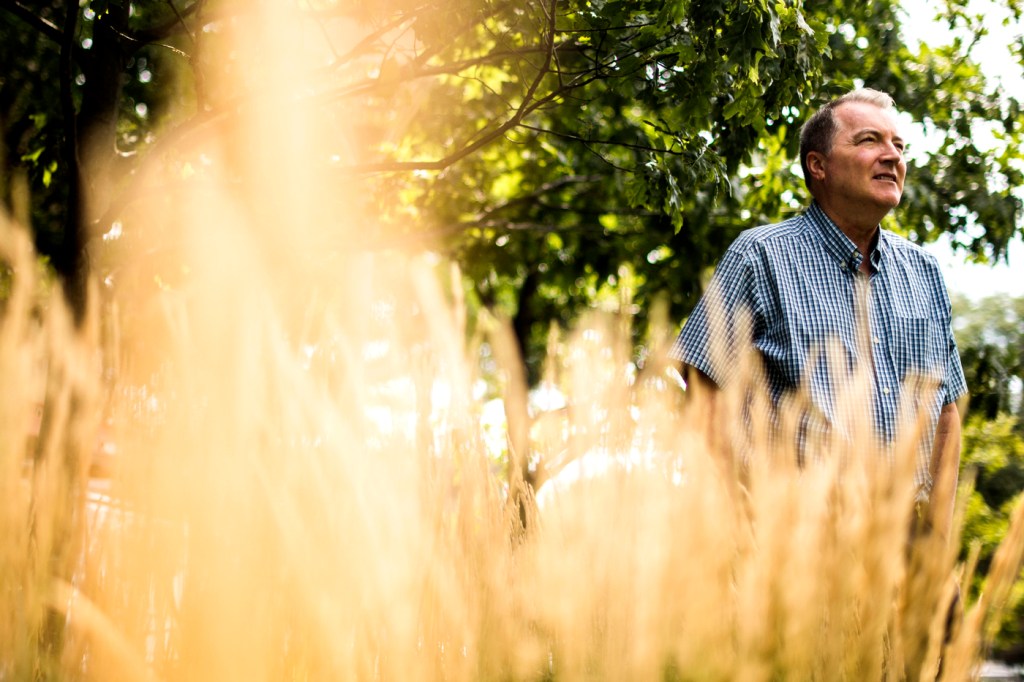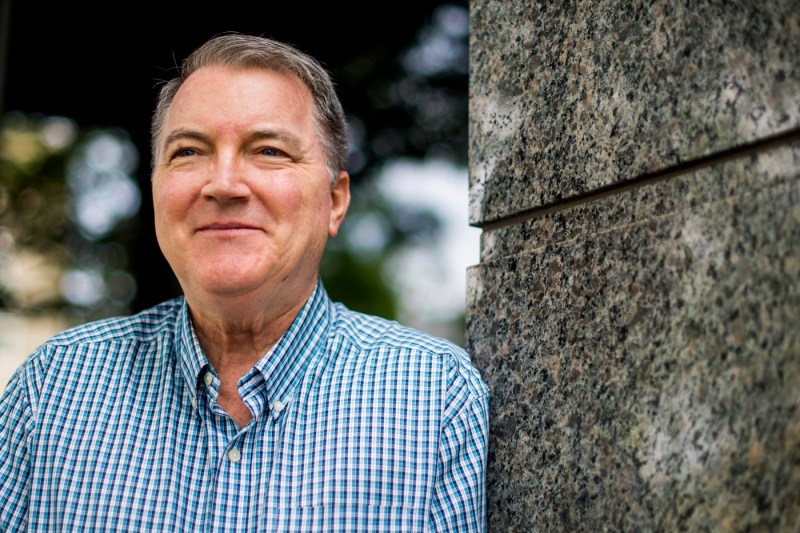Global Educator Award winner has built a career on opening the world to Northeastern students
Thirty years ago, Denis Sullivan took Northeastern students to Egypt. Today, the Dialogue of Civilizations program traverses the globe.

The first time Denis Sullivan stepped out of a plane in Cairo about 40 years ago, the world around him turned black and white, or dusty yellow to be exact.
“I was a Midwestern kid who had never left the United States,” says Sullivan, professor of political science and international affairs at Northeastern University. “I had that ‘Oh my God, we’re not in America anymore’ moment.”
Everything fascinated him in this ancient, sandy city.
On his very first evening in Cairo, Sullivan, who came to Egypt on a scholarship from the U.S. Department of Education to study Arabic, and two of his colleagues went to Tahrir Square. Three young Egyptian men approached them, hearing the foreigners talk in English, and one of them said, “Welcome to Cairo.”
“With his arms spread out,” Sullivan says. “The very first person that actually interacted with me was such a welcoming, smiling, warmhearted person.”
They became fast friends for life, he says.

That first visit to the Middle East solidified his interest in the region and predetermined the trajectory of Sullivan’s career in higher education. It also played a role in the start of the immersive Dialogue of Civilizations program at Northeastern, now an anchor of the university’s global experiential learning model.
For his achievements, Sullivan has been selected for Northeastern’s second annual Global Educator Award.
Joani LaMachia, senior cooperative education coordinator in the College of Social Sciences and Humanities, nominated Sullivan for the award.
Sullivan says he cares deeply about everything that it represents. He loves opening up the world — and especially the Middle East — to students as well as learning from them.
“I’m just very student-centered,” he says.
Over the years, Sullivan served as the director of the Dialogue of Civilizations program, director of the Middle East Center, director of the Middle East Studies program, director of International Affairs Program and director of International Initiatives.
He played a key role in creating a curriculum for and growing the International Affairs Program at the university.
He currently leads graduate programs in the political science department.
Sullivan first took a group of 10 students to Egypt in 1994. He began calling the following trips “Dialogues of Civilizations” in 1997 in contrast to the title of a book, “The Clash of Civilizations,” written by American political scientist Samuel Huntington.
Sullivan expanded the program by persuading other professors of art, journalism, engineering, business, health sciences and other fields with an interest in a foreign country to develop a dialogue there. He would mentor and train his colleagues and take them on his dialogues.
“Any time a student has an interest in a part of the world, I’ll see if there’s a faculty member willing to take them and then build a group around them,” he says.
More than 1,200 students participated in Sullivan’s Dialogues in the Middle East and the Balkans over the last 30 years.
“My mission throughout has been to promote dialogue, understanding, friendship, partnership, global connections — across cultures, across ideological and other divides,” Sullivan says.
He has leveraged dialogues for grants from the U.S. State Department, Department of Education, Defense Department and the Carnegie Corporation.
Sullivan believes that everything in life is connected and he strives to connect not only people but also ideas.
“He has this way of communicating and collaborating with people across the globe, across cultures and experiences, which promotes this robust learning,” LaMatcha says.
The connections and partnerships, Sullivan says, in research or curriculum development, with industry or business create infrastructure for the students to do co-ops and study abroad. These experiences, he says, help students advance in their careers in the future.
Featured Posts
“That’s also about really creating the space that then also gives opportunity for our students to fill that space,” he says.
Sullivan founded the Boston Consortium for Arab Region Studies for that very reason — to collectively send graduate students from collaborating schools to Middle Eastern countries for field work.
Farhana Hussain, a 2016 graduate who studied international affairs, Middle East studies and international security, is a testament to Sullivan’s educational approach.
“Denis is the rock in my river — steady, strong and instrumental in changing the course of my journey,” Hussain says. “The opportunities that he steered in my direction changed the trajectory of my career.”
After graduating from Northeastern and working as Sullivan’s undergraduate teaching assistant for the Jordan, Oman and Balkans dialogues, she says, she went on to serve at the highest levels of government and industry. She was an adviser to the co-chairs for the Biden-Harris transition team, served as an adviser to the COVID-19 response coordinator, and a senior adviser to the White House chief of staff.
“Denis prepared me well for these demanding roles, teaching me to think fast, adapt and maintain composure under pressure,” she says. “He has made me a more creative, empathetic, and effective policymaker and implementer.”










